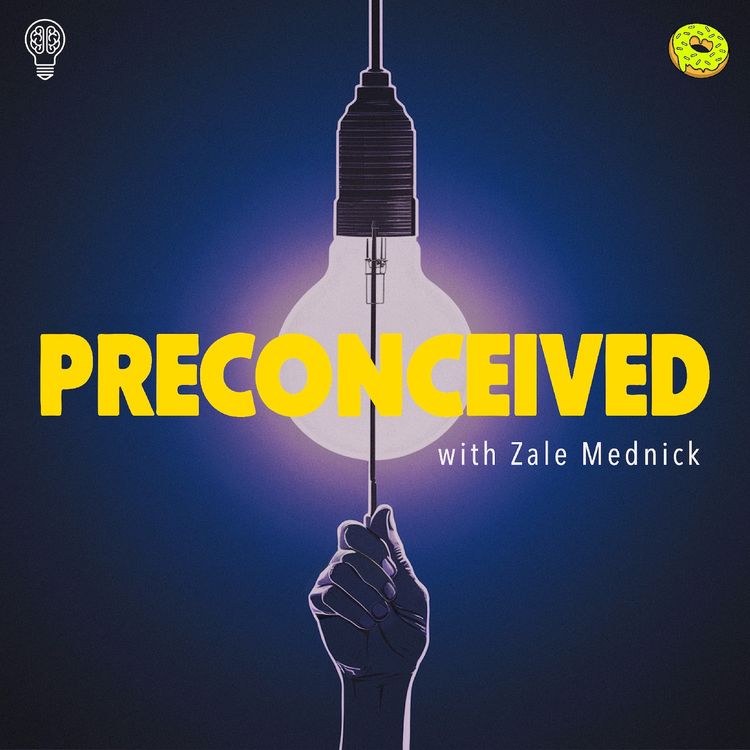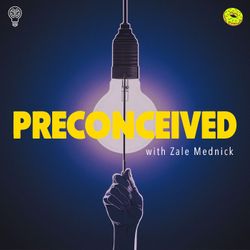Share

Preconceived
246. The Only Child
•
There is a certain stigma about only children - the idea that they may become more self-centred, and the concern that they will be lonelier in life without siblings. Such concerns have even prompted some to suggest that it is 'selfish' for parents to only have one child. But what does the evidence show about the life experiences of children who do not have siblings? Psychology Professor Tony Falbo, from the University of Texas at Austin, joins the podcast.
More episodes
View all episodes

302. Defensive Pessimism - Are There Some Benefits to Negative Thinking?
31:44|In this episode of Preconceived, Zale explores the concept of happiness and melancholy with Professor Julie Norem, a psychology expert from Wellesley College. They delve into the strategy of defensive pessimism, discussing how it can be a beneficial approach for managing anxiety and achieving goals. The conversation also touches on societal pressures to maintain constant happiness and the value of embracing negative emotions as part of a rich, authentic life.Check out Julie's book at https://www.amazon.ca/Positive-Power-Negative-Thinking/dp/0465051391
301. Is Democracy Dying?
55:42|In this episode of Preconceived, Zale explores the concept of democracy and its current state in the world, particularly in the United States. He is joined by Peter Biro, a lawyer, writer, and NGO leader, who discusses the importance of not taking democracy for granted and the potential threats it faces. The conversation delves into the meaning of democracy, its perceived sanctity, and the role of liberal constitutionalism in combating democratic backsliding.
300. The Wokeness Debate - Unpacking Gender Identity and Cultural Shifts
01:05:15|In this 300th episode of Preconceived, we dive deep into the intricate world of wokeness—a term that has sparked both fervent support and intense debate. What does it truly mean to be 'woke'? How has this cultural phenomenon reshaped our conversations around identity, free speech, and societal norms? Join us as we unravel these questions with our guest, Eric Kaufman, who brings a wealth of knowledge and a critical eye to the discussion. Check out Eric's latest book Third Awokening at https://www.amazon.ca/Third-Awokening-12-Point-Progressive-Extremism/dp/B0D459XT8N
299. The Essence of Invention
46:31|In this episode of Preconceived, Zale sits down with Dr. Kieran Murphy, a renowned inventor and professor of radiology, to explore the essence of invention and creativity in medicine. Dr. Murphy shares his journey from medical innovations to his thoughts on the socio-economic factors that influence creativity. Discover how invention is not just about genius but a mindset, and learn about the challenges and triumphs in the world of medical creativity. Dr. Kieran Murphy's Book - https://www.amazon.ca/Essence-Invention-Medicine-Joy-Creativity/dp/1459754034
298. Forced Fatherhood - Male Reproductive Rights
59:04|In this episode of the podcast, Zale has a discussion with Laurie Shrage about the often-overlooked topic of male reproductive rights. The conversation delves into the complexities surrounding male reproductive autonomy, contrasting it with the more widely discussed female reproductive rights. Ultimately, this episode gets at the question of whether or not men should be able to opt out of fatherhood if it is early on enough in the pregnancy when the female could still get an abortion. Laurie highlights historical legal cases like Roe v. Wade and Gomez v. Perez, exploring their implications on both male and female reproductive responsibilities.
297. Good Vibrations - The Neuroscience of Music
54:22|In this episode of Preconceived, Zale explores the profound impact of music on our emotions and well-being with guest Stefan Kölsch, a renowned psychologist and neuroscientist. They discuss the science behind music's ability to evoke emotions, enhance mood, and even offer therapeutic benefits. Stefan shares insights from his book "Good Vibrations," highlighting how music can be used intentionally to foster mental resilience and social connection.Good Vibrations - https://www.cambridge.org/core/books/good-vibrations/C20B64B04D50BBC208503E84F9C84772
296. BDSM - More Common Than You Think
49:32|In this episode of Preconceived, Zale delves into the often misunderstood world of BDSM with guest Alicia Walker, an associate professor of sociology. They explore the complexities of bondage, discipline, dominance, submission, sadism, and masochism, discussing why these practices appeal to many, and how they contribute to personal happiness. Zale tries to understand why the idea of being humiliated would appeal to some, while the act of inflicting pain would appeal to others. Alicia shares lessons learned from researching and writing her latest book, 'Bound by BDSM'. Bound by BDSM - https://www.bloomsbury.com/ca/bound-by-bdsm-9798881803032/
Taylor Swift - In a League of Her Own
50:04|Taylor Swift is arguably the most famous person in the world – a pop star the likes of whom many of us haven’t seen in our lifetimes. Especially over the past year with the release of her latest album Midnights and her record-breaking The Eras Tour, it’s not crazy to wonder if what we are witnessing right now is somewhat analogous to the Beatlemania of the 1960s. So what exactly is the phenomenon of Taylor Swift? Why has she risen to the heights that she has and captivated so many people like few other artists have before her? Is this truly a special pop culture moment, or is it perhaps being overstated? Music industry veteran Ralph Jaccodine joins the podcast.
295. Achieving Elite Performance
48:25|In this episode of Preconceived, Zale interviews Dr. Cassidy Preston, a high-performance coach who works with professional athletes and surgeons. They discuss the importance of mindset, dealing with stress, and achieving high performance in high-pressure environments. Cassidy shares insights on the inside-out approach to mindset, the role of acceptance, and the significance of routines and preparation.Learn more about Dr. Cassidy Preston -https://drcassidypreston.com/